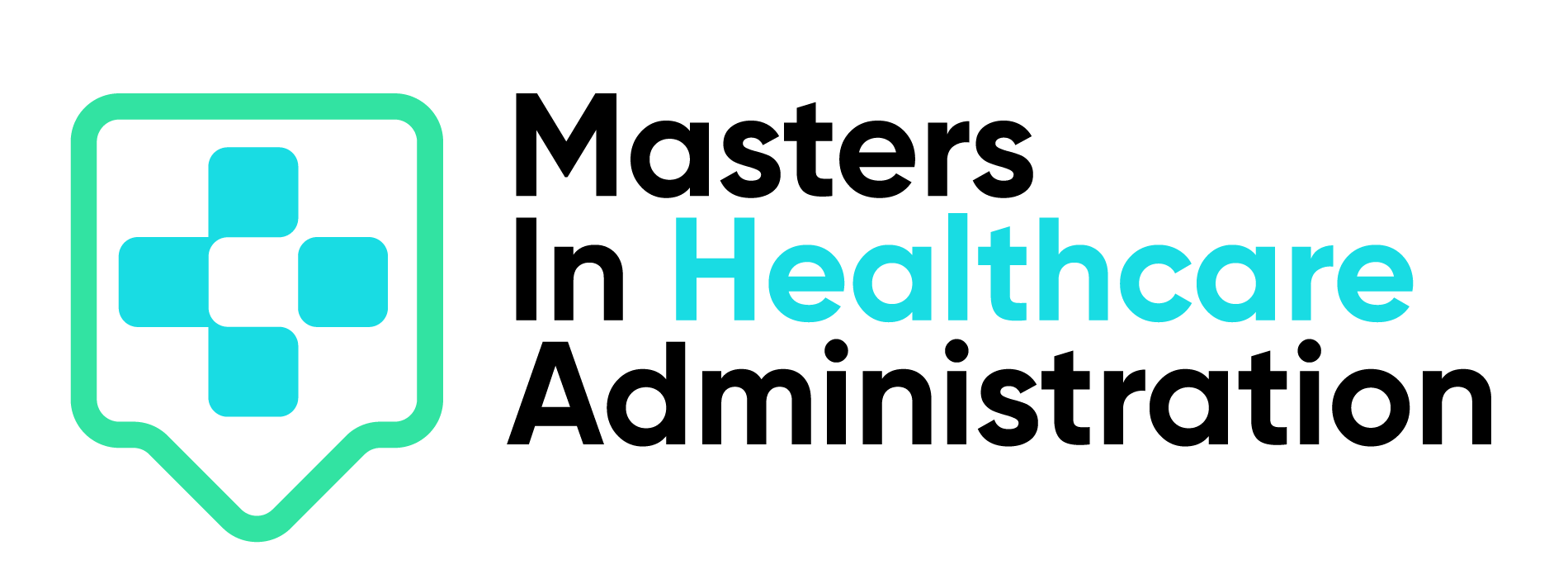A Masters in Healthcare Administration degree can help you build the knowledge and skills necessary to succeed as a manager or executive. But if you want to prevail and reach the pinnacle of the healthcare echelon, you will need to improve on these 18 competencies (and build on some more.)
1. Leadership Skills
As the old adage goes, there’s a stark difference between a manager and a leader. Managers work to control their staff to achieve a certain goal or objective. Leaders, meanwhile, motivate and influence others so that they become instrumental to the institution’s success.
Needless to say, a healthcare administrator needs to have leadership skills, not ‘managerial’ skills. Such entails a combination of many talents, from strategic planning skills to team-building skills.
Given the challenging nature of healthcare leadership, administrators with strong leadership skills should be able to transform their organizations, execute their goals, and lead their staff to exemplary outcomes.
2. Critical Thinking Skills
Critical thinking refers to the skill of analyzing, interpreting, and evaluating available information to make the best judgment or decision. Needless to say, this skill is essential for healthcare administrators for they will need to troubleshoot a lot of issues.
A healthcare administrator with superb critical thinking skills will be able to lead their organization through staffing shortages, low morale, and other problems that can adversely affect day-to-day operations.
3. Decision-Making Skills
Healthcare administrators need to make big decisions every day. That’s why you need to master the art of decision-making, which entails balancing and considering multiple factors to come up with the best judgment for the organization. More often than not, it comes hand-in-hand with critical thinking.
Good decision-makers who look at all the data at hand before they pass verdicts help:
- Improve patient care and outcomes
- Ensure patient safety
- Optimize resource allocation
- Implement policies effectively
- Promote collaboration within various departments or organizations
- Develop innovation strategies
4. Problem-Solving Skills
Healthcare facilities are often beset with issues, whether it comes to patient care, staffing, or finances. As such, a healthcare administrator should have impeccable problem-solving skills. That means having the ability to think on their feet in order to respond to pressing issues and solve them right away.
With years of practice, healthcare administrators will eventually hone their ‘sixth sense,’ which allows them to detect something is amiss right before everything goes awry. This allows these leaders to solve problems while they are still small and easily manageable.
5. Strategic Planning Skills
Strategic planning is another crucial skill that health administrators should master. After all, this could help you analyze organizational goals, identify areas that need improvement, launch the necessary strategies, and keep track of the effectiveness of such strategies.
To become a strategic planner, a healthcare administrator must possess many of the skills discussed here, such as good communication skills, leadership skills, problem-solving skills, and critical thinking skills.
6. Data Analysis Skills
Administrators need to have strong data analysis skills. After all, you will have to face a bevy of information each day. From admission numbers to profits and losses, you need to be able to analyze these effectively in order to make the right decisions.
Needless to say, being able to interpret information accurately will help you create better services while meeting the organizational budget.
7. Communication Skills
Strong communication skills are vital for every individual, especially so for healthcare administrators. You have to communicate with all sorts of people, from fellow executives to middle managers and frontline staff.
As such, you need to master your communication skills, both written and verbal, as these are important when communicating procedures, regulations, and policies either through face-to-face discussions, phone conversations, or email blasts.
8. Collaborative Skills
Healthcare administrators need to work with many individuals and organizations, ranging from healthcare staff, patients, and their families to government institutions, and insurance companies. That’s why healthcare administrators need to master collaborative skills, as these will allow them to work harmoniously with others as they strive to reach a common goal. After all, doing so will ensure the immediate and timely achievement of such goals.
9. Quality Assurance Skills
It’s important to meet quality standards, especially in healthcare. Failure to do so can lead to a lapse in services, poor customer satisfaction, and so much more.
With exceptional quality assurance skills, healthcare administrators can help:
- Improve service efficiency
- Enhance organizational reputation
- Increase client confidence
- Reduce waste
- Boost staff morale
Quality assurance skills cover several competencies, such as attention to detail and time management. They also include other skills in this list, such as that of problem-solving, communication, and collaboration.
10. Change Management Skills
Change is the only thing that’s constant, that’s why healthcare administrators need to brush up on their change management skills. Healthcare organizations, after all, are at the mercy of several changes. There are adaptive changes, which, according to the Harvard Business Review, are small and gradual. Then there are transformational changes, which are larger in scale and scope and thus can lead to a dramatic change within the organization.
The good news is these skills usually encompass the other competencies listed here. That includes good communication skills, leadership skills, and strategic planning skills. Other skills that prove handy for change managers include research acumen, which is just one of the many lessons you’ll learn in a top MHA program.
11. Professionalism
Professionalism is a vital skill across all industries, healthcare most importantly. After all, this refers to conducting oneself with integrity, responsibility, excellence, and accountability.
Employers dote on administrators who exhibit qualities that showcase professionalism, such as coming to work on time and managing their time effectively, communicating and working well with others, and dressing appropriately, to name a few. Remember: you’re serving as a role model to many of the staff members in your organization.
12. Business Skills
Healthcare institutions are businesses. That’s why many of them require their administrators to have an MHA or MBA (or both). They need to have the business savvy to effectively run the organization, after all.
That’s why one of the more crucial business skills to master is the art of budgeting.
True enough, mastering business and financial principles will help any administrator lead their institution through the challenging healthcare climates.
13. Information Technology Skills
Healthcare is now being dominated by technology, as evidenced by degrees such as Health Information Management being offered to aspiring healthcare managers. From electronic health records to automated billing systems, they help preserve the integrity and security of sensitive clinical data.
As a healthcare administrator, you need not develop your own program (although you can.) However, you need to be well-versed with the common systems used in your organization. This will help you pool the necessary data and recognize any technological shortcomings that may hinder the institution from delivering efficient care.
14. Clinical Skills
Having years of administrative experience is good, but in most cases, employers want their administrators to have some patient care experience as well. After all, it’s hard to solve a clinical issue if you haven’t had experience dealing with it yourself.
Having firsthand knowledge about diseases, treatments, and other related info that are central to healthcare delivery will give administrators like you a leg up over those who just have pure business skills.
15. Emotional Intelligence
Research has shown that emotional intelligence or EI is crucial for healthcare administrators. As a primary leadership competency, it refers to the interpersonal and intrapersonal skills that promote self-awareness, self-motivation, self-regulation, social skills, and social awareness. A high EI provides managers with the sensitivity to recognize issues and act on them immediately.
16. Mentoring Skills
As much as healthcare administrators want to hold on to their position for so long, they can’t. That’s why it’s important to develop mentoring skills, as you will have to pass your duties and responsibilities to another manager sooner or later.
Mentoring can be formal or informal. Your organization can set up an official mentoring program, just like those offered by CAHME-accredited MHA programs. On the other hand, you could just provide advice and be a sounding board to the managers reporting to you. Whatever the format may be, mentoring can help populate your organization with future leaders that emanate professionalism and positivity.
17. Legal Knowledge
While most healthcare institutions have their own legal teams, it wouldn’t hurt to brush up on your legal knowledge as well. After all, this could help you recognize potential issues and respond to them promptly. Most importantly, sufficient knowledge will help you avoid costly penalties, charges, and litigations.
18. Diversity Awareness
Healthcare is multicultural. Whether you’re managing a hospital or a doctor’s clinic, you will come across patients and staff of various backgrounds. That’s why as a healthcare administrator, you need to master the art of diversity awareness.
Being aware of diversity means understanding and acknowledging each individual’s uniqueness or differences. These can encompass multiple aspects, such as:
- Age
- Gender
- Sexual orientation
- Race/ethnicity
- Socio-economic status
- Physical abilities
- Religious or political ideologies
How to Improve Your Healthcare Administration Skills
For some of the skills in the list, it’s all “practice makes perfect.” In other words, the best way to refine such competencies is to do them repeatedly.
But in the case of some other competencies, such as information technology skills and legal knowledge, you may need to undergo further education.
An MHA can provide you with such an opportunity. And if you already have one, a Doctorate in Healthcare Administration degree can help you develop your competencies further.
If you’re pressed for time (or budget), a certification program can help you build up your skills in the meantime. Additionally, you can use these credits towards an MHA or MPH degree should you decide to pursue one later on (and you should!)

